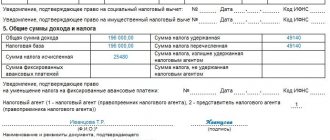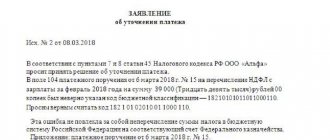According to practice, the disposal of municipal property very often brings headaches to the accountant of the institution. To correctly write off real and movable property assigned to an organization, you need to focus on important documents:
| Decree of the Government of the Russian Federation of October 14, 2010 N 834 | “On the peculiarities of writing off federal property” |
| Order of the Ministry of Economic Development of the Russian Federation and the Ministry of Finance of the Russian Federation dated March 10, 2011 N 96/30n | “On approval of the procedure for submission by federal state unitary enterprises, federal state-owned enterprises and federal government agencies of documents for approval of the decision to write off federal property assigned to them under the right of economic management or operational management.” |
The provisions of Decree No. 834 do not apply to the write-off of the following products:
- federal property withdrawn from circulation;
- collections and museum objects;
- federal property located outside the Russian Federation;
Preparation and decision-making on the write-off of property is made by a permanent commission. It also establishes the procedure for the disposal of state property.
The law prohibits storing waste for more than 10-11 months.
You cannot transfer decommissioned property classified as hazardous to companies that do not have a license and permit to operate waste management.
Write-off and disposal
The industrial and commercial group provides recycling services after write-off of fixed assets, machinery, and equipment in St. Petersburg, Moscow and other cities.
All activities are provided with appropriate licenses, certificates and certificates, and are carried out in accordance with the legislation of the Russian Federation. Almost any organization has machinery, equipment, computers and office equipment on its balance sheet. But any technology becomes obsolete over time and requires replacement. The company management or accounting department is faced with the question: “How to properly write off and dispose of it?”
How difficult is it to implement your own waste disposal system?
When organizing a waste disposal system, an enterprise must comply with the requirements of sanitary control authorities. It is necessary to properly equip the storage area, maintain documentation, conduct annual training for employees, etc. In case of violation, administrative liability is provided - from large fines to closure of the company.
To establish a full cycle of collection and recycling, considerable financial investments are required in the creation of the project and the purchase of equipment.
The procedure is complex and time-consuming, but the main thing is that all actions must be carried out in strict accordance with the law. Here are just a few steps you need to follow: Step 1. Calculate waste generation rates.
Activities for the removal and disposal of waste at the enterprise are planned based on the standards for their generation. When calculating, they are guided by accepted values, which differ for different organizations. For example, when selling household goods, this is 1.29 m3 of waste per 1 m2 of operating retail space, and for kiosks – 5.09 m3.
Representatives of small and medium-sized businesses submit reports on waste standards and receive allocated limits that they will have to follow when implementing a recycling system. They cannot be exceeded.
A limited amount of waste can be stored on the territory of the enterprise - in accordance with the limit
Step 2. Organize collection and sorting.
Garbage at enterprises is collected in containers and transported to designated areas. Each container must contain information about the type of waste, inventory number, container site number, and other data. Removal from storage sites is carried out by a specialized organization. The main condition is not to exceed the accumulation limits before removal.
At enterprises where hazardous medical waste of class “B” is generated, specialized containers are used. In addition, SanPiN prescribes strict rules for handling it - replacement frequency, filling volume, etc. If waste is stored for longer than 24 hours, refrigerators will be needed.
To store medical waste, you need special disposable and reusable containers.
Step 3. Appoint and train a responsible employee.
A specially trained employee is responsible for waste management at the enterprise. He controls the collection, the condition of storage areas, compliance with limits and security measures, and performs other actions.
Not all enterprises have a full-time ecologist, so these responsibilities often become additional and therefore secondary for the employee.
As a result, violations due to the human factor, fines and troubles with the law. Step 4. Purchase and put into operation combustion equipment.
Incineration is a high-tech method of waste disposal. It can be implemented in an enterprise if there is large start-up capital. Sorted waste is burned in furnaces or cement kilns, and the remaining ashes are buried in special landfills. There are also special installations for pyrolysis - thermal decomposition of waste without oxygen. The resulting heat can be used in the heating system.
Modern furnaces are compact technological lines for the disposal of liquid, solid, and biologically hazardous waste at the point of their generation. They are equipped with gas purification systems, but require preliminary waste sorting. The equipment runs on diesel fuel and has a complex design, so you need to undergo training to work with it.
Depending on the specifics of the enterprise, a furnace is selected for burning mixed, hazardous waste:
- phenol and formaldehyde in the production of chipboards;
- animal corpses;
- liquid waste from polypropylene production, etc.
There are also universal models for industrial waste. The equipment is expensive and will pay for itself in more than one year.
The cost of incinerator furnaces amounts to hundreds of thousands of rubles
Step 5. Organize accounting and inventory.
At least once a year, the head of the enterprise involves a qualified ecologist to account for waste. Inventory (study of the composition of waste, sources of its formation, etc., drawing up a report) is carried out if necessary. The rest of the time, it is necessary to keep regular records of waste collection, storage, disinfection, and removal.
Write-off procedure
What is subject to disposal when written off?
Any office equipment, vehicles, medical and other equipment must be disposed of after write-off. There is no official list, but for equipment and other material assets thrown into a landfill, according to the Russian Federation Law “On Production and Consumption Waste” and the Code of Administrative Offences, a fine is imposed. As of 2021, office equipment is considered Class 4 waste and must be disposed of as hazardous waste.
In addition, household office equipment requires recycling, for example, office climate equipment (air conditioners, heaters), table lamps, telephones, laptops, copiers, faxes, projectors, cash registers, furniture and, of course, hazardous waste such as fluorescent lamps and various chemicals.
What is done first: write-off or disposal?
First, you need to prepare documents for write-off, for example, a defective statement and a write-off act. Only then can the equipment be dismantled and disposed of.
Disposal upon write-off of fixed assets
According to the legislation currently in force in the Russian Federation, all enterprises, when writing off property that has lost its consumer properties, must dispose of the waste generated during write-off (see N 89-FZ “On production and consumption waste”). Next, you need to decide on the class of waste, because all waste of classes 1-4 must be disposed of only by specialized organizations that have the appropriate licenses (for example, a license for the collection and transportation of hazardous waste, see our Licenses and Certificates). When property is written off, waste of hazard class 4 most often arises. For them, it is necessary to issue environmental waste passports (you can contact our specialists regarding the issue of issuing passports).
In addition, almost all machinery and equipment contain precious metals. In this case, the waste generated during write-off is already subject to the Law “On Precious Metals and Precious Stones” No. 41, paragraph 4, Article 22. According to this law, scrap and waste of precious metals are subject to mandatory accounting and collection in all organizations. According to paragraph 6.3 of Instruction No. 68n, enterprises and institutions must keep records of precious metals in all states and types, including those included in fixed and working capital, purchased instruments, components, parts, semi-finished products and other materials (for fixed assets, data must be reflected in the transfer and acceptance certificates f. 0306001 and f. 0306031). According to paragraph 3.2 of Instruction No. 68n, taking into account paragraph 1.1 of Article 20 of Law No. 41-FZ, written-off assets or inventories contain precious metals; they must be sent for refining or transferred to another organization for processing for the purpose of subsequent refining.
For example, government agencies that do not directly carry out production most often generate waste of hazard class 4 when written off from their balance sheets. Discarded equipment and office equipment contain precious metals. Thus, when writing off fixed assets, which include equipment, office equipment, household and other appliances, hazardous waste of class 4 containing precious metals is generated. Transfer of hazardous waste is possible only to organizations licensed to handle this type of waste. But, at the same time, the transfer of scrap and waste containing precious metals is possible only to specialized organizations that have a certificate from the Assay Office, granting the right to handle precious metals.
As a result, the simplest option when writing off and disposing of fixed assets is to conclude an agreement with an organization that has a Rostest certificate for conducting an independent assessment of technical condition, a license for the right to handle hazardous waste and an Assay Office Certificate for handling precious metals. This will allow you to significantly simplify coordination with various higher authorities and reduce time compared to working with two or three different contractors. The group has these permits.
Disposal after write-off
Disposal of fixed assets after write-off
Fixed assets, including substances harmful to human life and health, belong to waste of hazard classes I-IV and therefore are subject to mandatory disposal by specialized licensed organizations.
Decommissioning and disposal of equipment
Write-off and disposal of office equipment
The write-off and disposal of office equipment in all organizations must be carried out in compliance with legal requirements according to a certain scheme, since the Tax Code of the Russian Federation implies the presence of precious metals in equipment. An assessment of the condition must be carried out, a decision must be made on write-off, parts containing gold and other precious metals must be dismantled, office equipment and waste generated must be disposed of.
Write-off and disposal of computers or other computer equipment
The write-off and disposal of old computers or computer equipment is carried out in the same manner as the write-off and disposal of office equipment.
Is it worth implementing a comprehensive recycling system at an enterprise?
To organize a full cycle recycling system on the territory of an enterprise, huge financial investments are needed in equipping the territory and equipment. It is necessary to involve ecologists and economists, calculate the volume of waste generated, collect a complete package of documents, and train employees. Of course, with this approach, the organization will be able to continue to work autonomously, independently controlling the waste management process.
But there is another way - the lion’s share of the work can be entrusted to specialists who are professionally involved in waste removal and disposal. Such companies clean enterprises and technological areas of solid household waste, sort it, remove it, and dispose of waste of all hazard classes in accordance with the requirements of the law. An important point is environmental support of the process.
Removal and disposal of enterprise waste is a whole science
The advantages of turning to specialists are:
- financial savings - there is no need to purchase expensive combustion equipment, invest in its maintenance and repair;
- simplification of the process - the contractor company will sort the waste and organize its removal according to a pre-agreed schedule;
- no penalties - professionals will help you with maintaining environmental documentation and tell you how to avoid breaking the law.
The removal of hazardous medical waste requires special attention. Without relevant experience, it is difficult to comply with regulatory requirements regarding collection, disinfection and disposal. When it comes to large fines, suspension of activities and epidemiological danger to the planet, it is better to trust the specialists.
Disposal of written-off property
Disposal of written-off property is mandatory for municipal and federal institutions. Government organizations must recycle:
- computers and office equipment,
- medical and laboratory equipment,
- acoustic and video equipment,
- furniture,
- sports equipment and teaching aids,
- paper archives and other documentation,
- electric heating devices,
- refrigeration equipment.
To dispose of property, you must first remove it from the balance sheet. This requires technical expertise, which is carried out by specialists from our company. They study and evaluate the current state of things, identify grounds for write-off in accordance with all legal and regulatory acts of the Russian Federation. After the examination, a conclusion is issued that contains all the necessary information:
- name of the organization performing diagnostics;
- education and work experience of the expert;
- name and legal address of the enterprise receiving the conclusion;
- name of the property to be written off;
- technical description and scope of application;
- compliance or non-compliance of the product with technical specifications, standard requirements and other criteria;
- date of issue and registration number of the report.
The document is signed by an expert and the head of our organization and certified with a seal.
After writing off the property from the balance sheet, specialists from FPK-Service LLC carry out its professional processing. We have extensive experience in the field of recycling, have all the necessary permits and licenses, and are registered with the Assay Office. We carry out processing in compliance with all safety rules and regulations.
Disposal of computers, office equipment and other decommissioned equipment takes place at special recycling plants. We send recyclable materials for recycling. This allows you to significantly save resources.
The process of disposal of written off documents takes place in the presence of a person representing the organization.
Disposal of decommissioned civil defense property
The civil defense pays special attention to the availability and preparation of personal protective equipment. But not all institutions and organizations promptly update the old fleet and purchase new PPE.
Civil defense property includes:
- PPE;
- chemical and radiation reconnaissance instruments;
- radiation monitoring devices;
- personal protective equipment;
- warning and communication means;
- material and technical means for use in the field of civil defense.
There are certain rules according to which the accounting of protective equipment is carried out, their write-off, as well as the disposal of civil defense property.
Material assets were not disposed of after write-off, what is the responsibility?
If this is not possible, we provide a video report on the procedure and a receipt. This is necessary for you to ensure the confidentiality of the process and complete safety of information.
Submit applications for disposal of written-off property and technical expertise directly on the website or by phone. We guarantee efficiency and high professional level of all employees, as well as very reasonable prices. For more information, please call. To find out how much it costs to dispose of furniture, equipment and documents, please refer to the price list.
Home > Documentation > Articles > Disposal of written-off fixed assets
Disposal of federal movable property
Sooner or later, any equipment, furniture and other property becomes unusable or becomes obsolete. After conducting an inventory in budgetary or commercial organizations, there is a need to write off a number of funds. To do this, a conclusion is drawn up about the malfunction of the equipment and the impossibility of its further use. After which a write-off act is drawn up.
Former assets are converted into waste of hazard class 1-5.
A company engaged in the neutralization of decommissioned equipment enters into an agreement with the client for the disposal of organizational property.
Disposal of written-off fixed assets
Disposal of written-off fixed assets is mandatory. In companies, all business transactions are carried out with supporting documents. The cost of unused fixed assets is written off in the following cases:
- sales,
- moral, physical wear and tear,
- emergency response,
- transfers in the form of a contribution to the authorized capital,
- identifying shortages for other reasons.
The write-off is formalized by the order of the manager and the Certificate of write-off of a fixed asset item, containing the following information:
- object creation date,
- dates of receipt of the fixed asset and commissioning,
- initial cost,
- amount of accrued depreciation,
- number of major repairs,
- reasons for write-off,
- the possibility of further use of written-off fixed assets and their components and parts.
If we are talking about particularly valuable property, then the consent of the founder is obtained. Dismantling and disposal of equipment is not allowed until the documents are completed.
Often fixed assets contain precious metals that are subject to mandatory accounting. It is difficult to find out about them - the data is not indicated in technical data sheets, most often imported equipment is purchased.
Write-off and disposal
Alternatively, you can study some sources on the composition of precious metals using the Assay Office. Complete information can be provided to you only after disposal of written-off fixed assets and transfer to a refining or processing enterprise. If the information received does not correspond to that specified in the primary documents, it is corrected based on new ones.
When independently dismantling written-off fixed assets, you can use the Methodology for carrying out work on comprehensive disposal. It contains a description of disassembling the equipment. You can recycle equipment without disassembling it.
FPC-Service LLC offers services for write-off, removal, dismantling and processing of fixed assets. Disposal of old equipment is carried out in accordance with technology and legal requirements. You can enter into an agreement with us for the provision of a one-time service or the provision of maintenance. For details about cooperation, please call.








